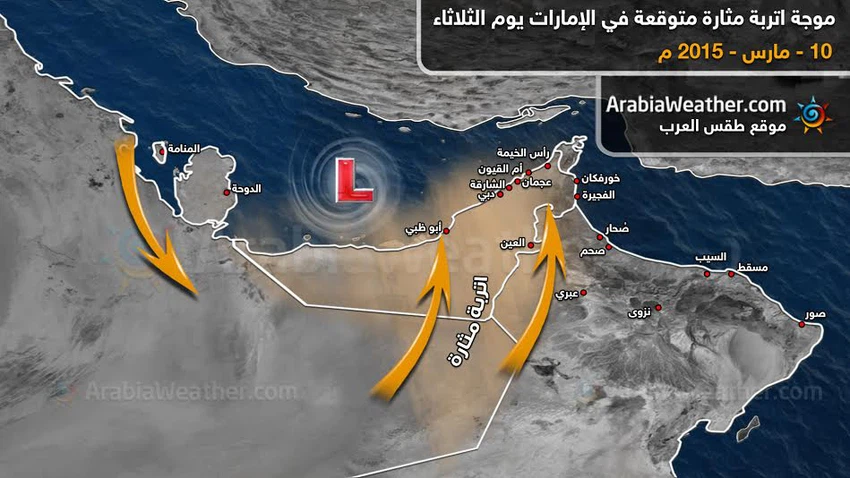تقلبات جوية مُقبلة على الإمارات من الثلاثاء حتى الخميس
موقع ArabiaWeather.com –عمر الدجاني- تُشير بيانات النماذج العددية المُشغلة لدى طقس العرب إلى أن دولة الإمارات على موعد مع تقلبات وتغيُرات جوية كبيرة اعتباراً من يوم الثلاثاء وحتى يوم الخميس على أقل تقدير.
ويُتوقع أن ترتفع درجات الحرارة بشكل كبير يوم الثلاثاء،بالتزامن مع هبوب رياح جنوبية حارّة وجافة،تعمل على إثارة الغبار والأتربة في أغلب المناطق،بالإضافة إلى اضطراب البحر وارتفاع الأمواج.
وتتكاثر السُحُب فوق الجبال شرقاً،ويُحتمل هُطول زخات محلية من الأمطار.

يوم الأربعاء،يطرأ انخفاض على درجات الحرارة،وتتكاثر السُحُب في المناطق الساحلية الشرقية وبعض المناطق الجبلية،وتتهيأ الفُرصة لهُطول زخات من الأمطار قد يصحبها الرعد أحياناً في مناطق مثل الفجيرة وخورفكان،فُرصة الأمطار قد تطال بشكل أقل أجزاء محدودة وقليلة من المناطق الشمالية والداخلية من البلاد.
يوم الخميس،يطرأ المزيد من الإنخفاض على درجات الحرارة،ويُراقب كادر التنبؤات الجوية في طقس العرب،احتمالية اندفاع الغُبار مُجدداً من جنوب إيران نحو أجواء الدولة.
شاهد أيضاً:
Arabia Weather App
Download the app to receive weather notifications and more..



